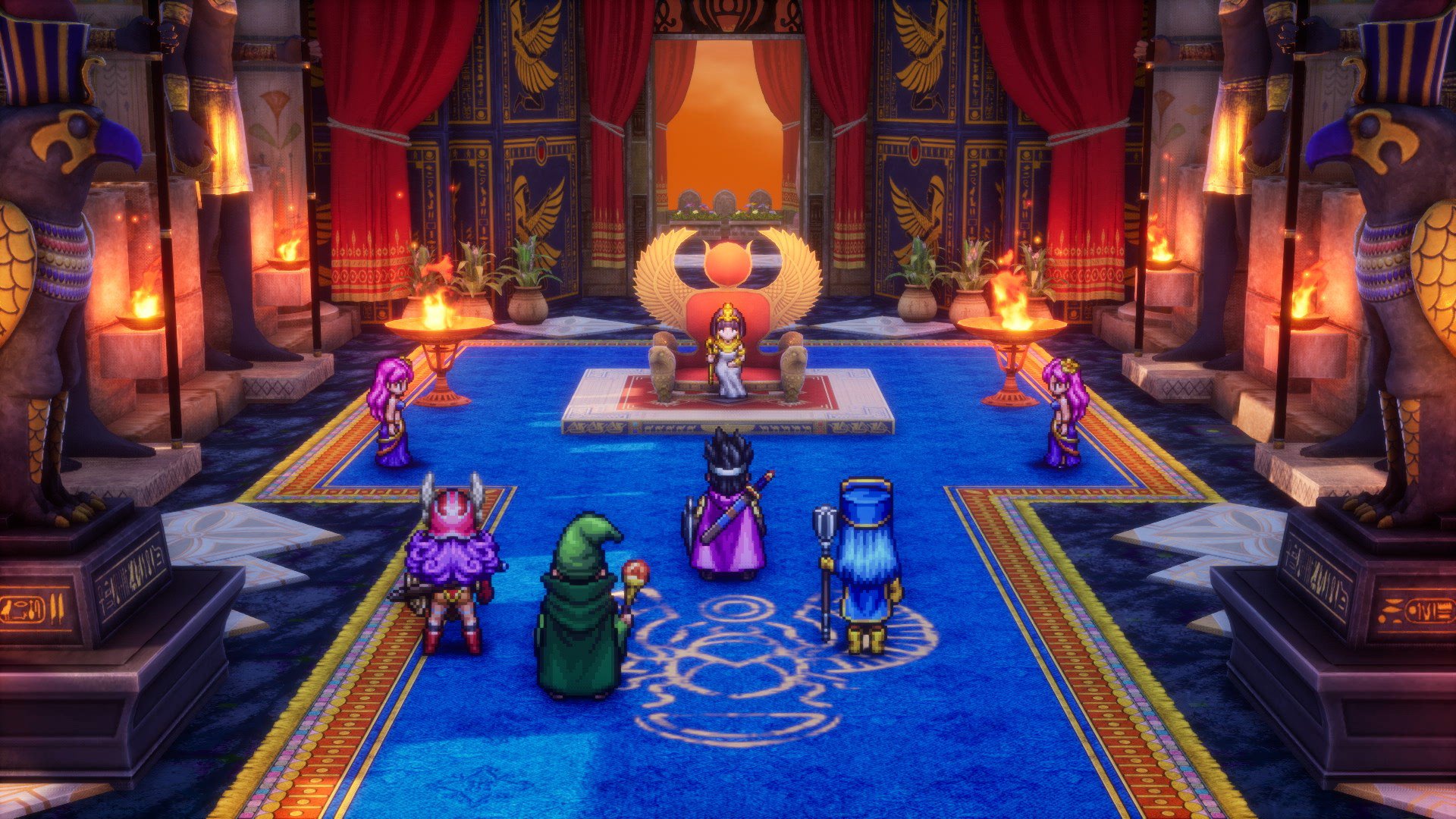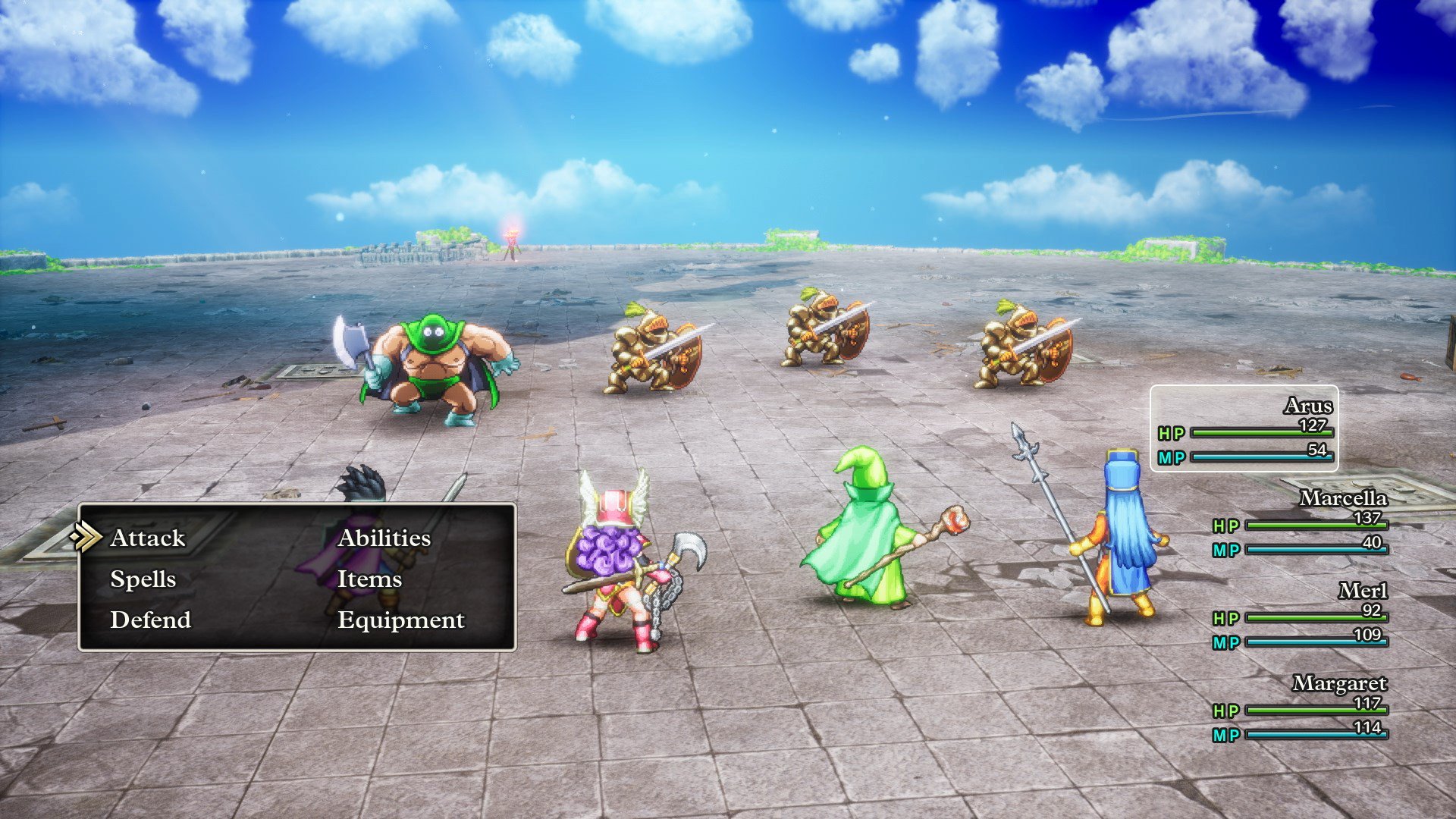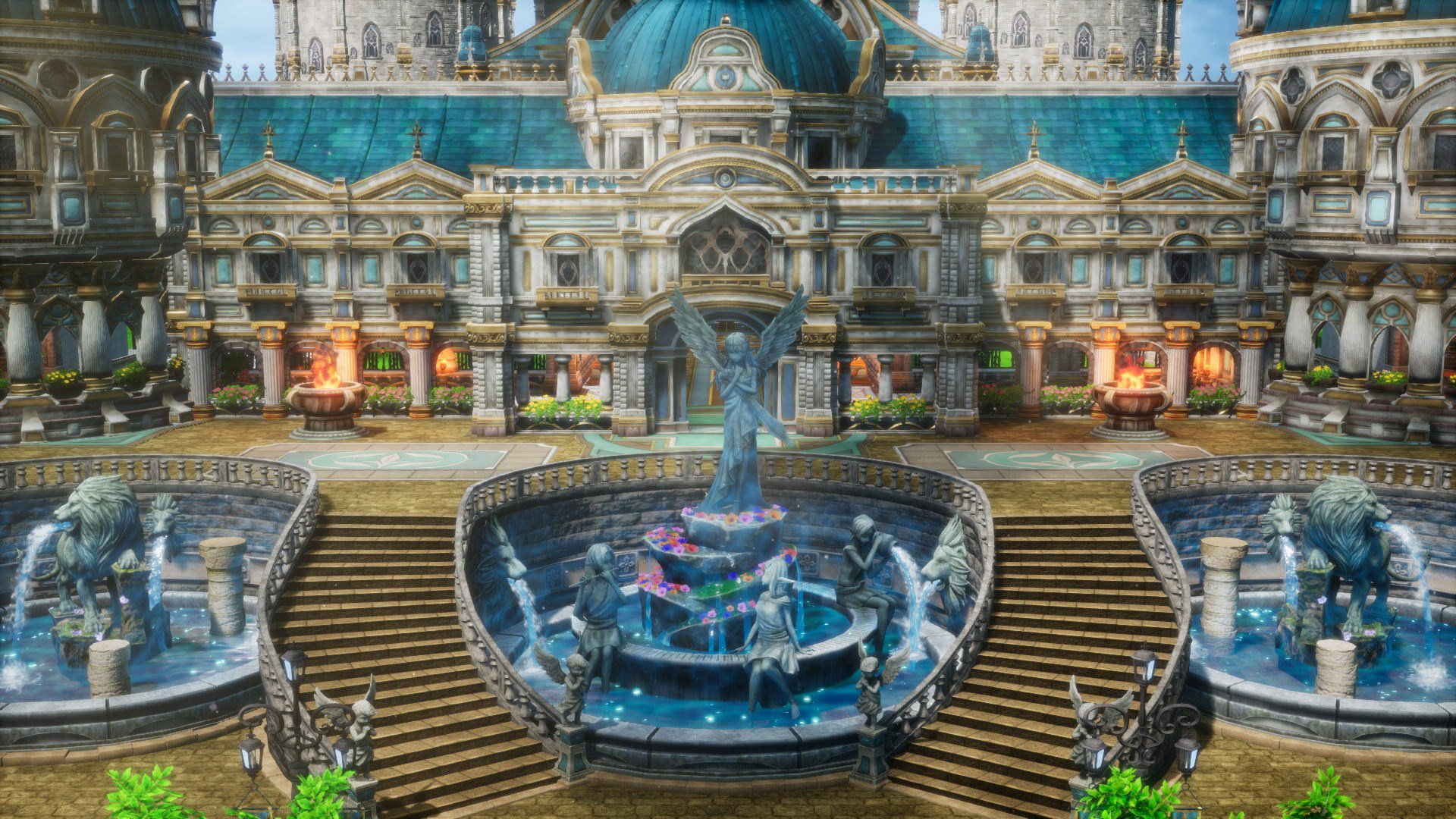
’s HD-2D technology breathes new life into one of the most influential classics in the JRPG genre.
While 1988’s 3 was an undoubted classic, that went a long way towards cementing the format of the Japanese role-playing game as we know it, I wouldn’t fancy playing it these days. Originally released on the NES (but only in the and ), its wispy sprites on blocky, pixellated backgrounds would feel unacceptably basic today. However, Square Enix has a solution for that, in the form of its clever HD-2D technology, which gives ancient games modern visuals, retaining an overhead view and a pixel art feel but adding solid 3D backgrounds.
Graphically speaking, I found Dragon Quest 3 HD-2D Remake to be more than acceptable when viewed as a 21st century game. Unlike in the original, I no longer had to use my imagination to decipher textures like stone, sand or water, or effects like flames. Square Enix has also endowed it with a vibrant colour palette, with greens, reds, and purples that sometimes verge on the fluorescent, so it looks every bit as cheery and upbeat as its general underlying vibe.
So, thanks to that HD-2D technology, which was pioneered in retro homage and 2022’s remake of (as well as Dragon Quest 1 and 2 – this one is coming out first because it’s chronologically the first entry in the series) this can now be viewed in terms of its gaming merit, rather than as a shonky-looking curiosity. And gameplay-wise, it’s quite fascinating – a sort of archaeological artefact that charts the moment when Japanese role-players developed conventions and systems that can still be seen in action today.
Dragon Quest 3 HD-2D’s battle system is turn-based and you can draw a straight line from it to, say, the similarly turn-based . Sure, at first its battling seems trivially easy, as the four character party take on a variety of cutely named but easily dispatched enemies, but I found that it quickly evolved into something more challenging and tactical, as my characters levelled up and began encountering bosses.
I even had to scrap my mage, who just wasn’t gaining enough hit points as she levelled up, and then swapped in a spell-casting replacement. That wasn’t as much of chore as it sounds, since Dragon Quest 3 HD-2D contains a lot of optional side missions and has a surprisingly large map (which, admittedly, Square Enix has expanded for the remake) that rewards exploration. Overall, it provides more than 20 hours of gameplay – more than I expected from such an old title.
Story-wise, it tends towards Zelda style cuteness and whimsy, with a hint of underlying darkness. Its protagonist is the 16-year-old son of the legendary warrior who, as he comes of age, is tasked by the king of his hometown Aliahan (the game world is very much of the medieval fantasy ilk) with finding and defeating the arch-fiend Baramos, a task his father perished while attempting to complete.
Cue a quest that sends the party to all corners of the diverse kingdom, first in search of keys to unlock new areas, then on the trail of Baramos. Pretty standard stuff in the context of modern medieval-style Japanese role-players, but fairly revolutionary in the late 80s; especially since each new city you visit has a distinct vibe as a port or desert oasis, and the locals speak in accents recognisable as, for example, Italian or Arabic.
There are some odd quirks, but I found them mostly endearing: churches, for example, play a large part, as they are the only places where you can save the game (although random nuns will occasionally perform that service – a new concession for the remake). They also let you resurrect dead party members (hilariously represented as coffins, after they fall in battle) and lift curses.
The game makes you press a button after crucial story-advancing conversations with characters, in order to preserve those conversations for later reference, which is a bit odd. But it’s also possible to teleport around the map and I amassed a vast amount of useful objects and equipment, such as seeds which buff individual attributes (such as strength, wisdom, or luck) and can be used to address party members’ specific deficiencies.

There’s also a great trading system – handily, since having the best kit can tip the balance when battling – which has also been rendered more logical since the original game. Deciding whether to equip characters with single-hit weapons that pack an added punch, or weapons that can attack several enemies per turn also plays into the tactical nature of the combat.
Square Enix’s subtle but crucial updates to Dragon Quest 3’s gameplay help to create a game which feels surprisingly coherent and familiar, in terms of the conventions of the genre. While its gameplay is pretty straightforward – nobody would expect a near 40-year-old game to innovate – it feels perfectly logical and the more I progressed in the game, the more depth I perceived in the gameplay. Which is what Japanese role-players, even now, are all about.
Sure, Dragon Quest 3I HD-2D Remake is a curiosity – an 8-bit game dragged into the 21st century purely on the basis of nostalgia (the remake became the best-selling game of 2024 in Japan within a week, solely because of how fondly the original is remembered). But it’s way more fun to play than that background might suggest.
Whether you know anything about Dragon Quest or not this offers a satisfyingly meaty experience and is endowed with a sweetly innocent vibe. Anyone who is curious about the origins of the genre should find Dragon Quest 3 HD-2D Remake fascinating; it’s still more entertaining than many modern equivalents and many times more charming.
Dragon Quest 3 HD-2D Remake review summary
In Short: A clever remake of one of Japan’s favourite video games, with charming new visuals and just the right amount of modern upgrades.
Pros: Surprisingly deep turn-based combat. Lovely innocent vibe with a large and diverse game world. Attractive visuals that strike a perfect balance between modernity and retro aesthetics.
Cons: The initial learning curve is perhaps too shallow. Quite straightforward by modern standards, especially in terms of the plot and characterisation.
Score: 7/10
Formats: Xbox Series X/S (reviewed), Nintendo Switch, PlayStation 5, and PC
Price: £59.99
Publisher: Square Enix
Developer: Artdink (original: Chunsoft)
Release Date: 14th November 2024
Age Rating: 12

Email [email protected], leave a comment below, , and .
To submit Inbox letters and Reader’s Features more easily, without the need to send an email, just use our .
For more stories like this, .




















